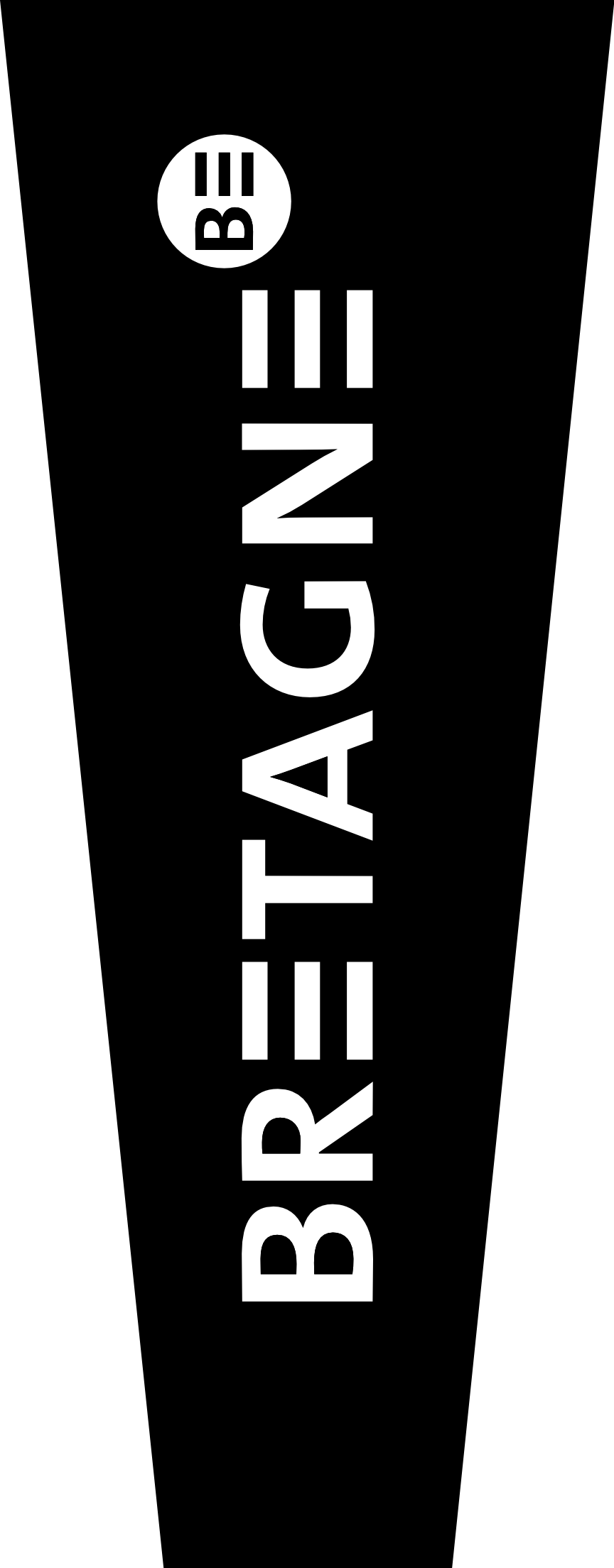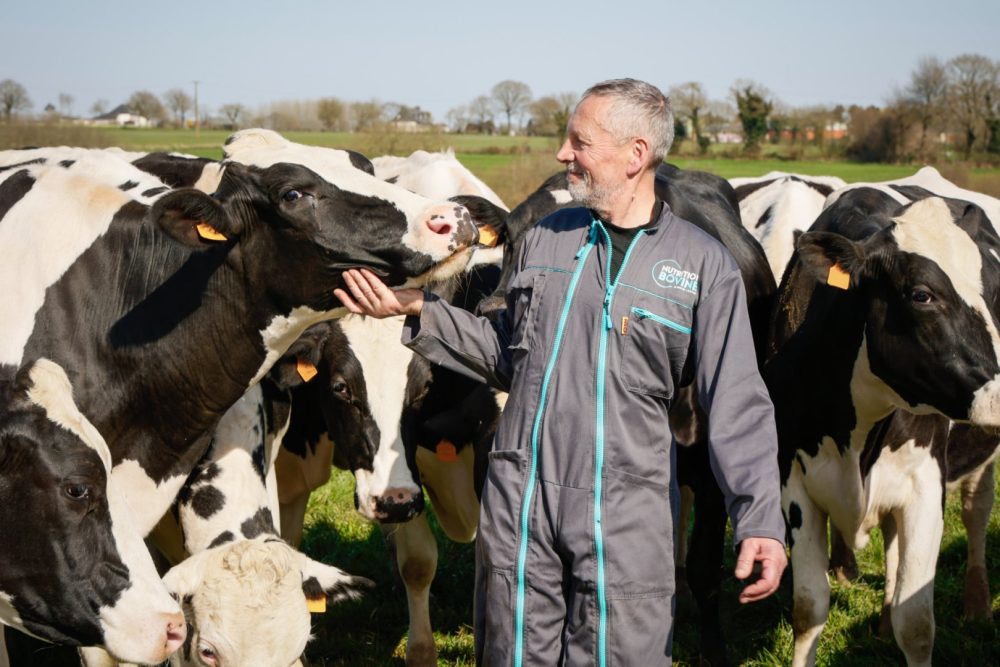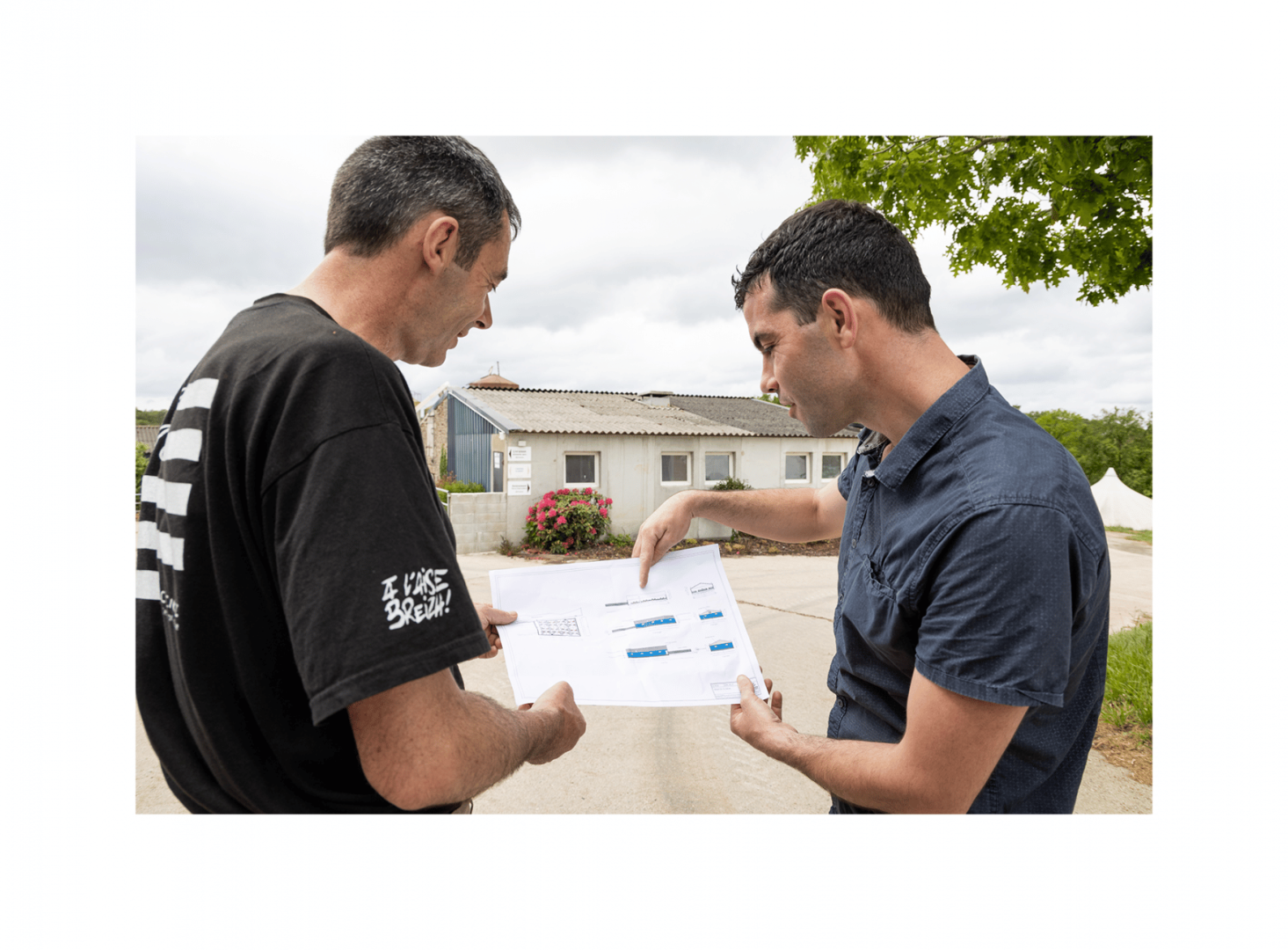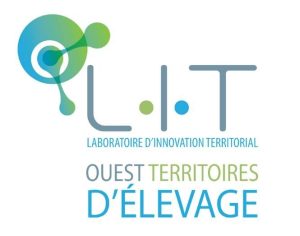

Animal health and welfare
The Eureden co-operative’s global approach to farming incorporates the health and welfare of livestock animals. Our action areas take a variety of forms. A network of veterinarians divided by species and geographic location travel to co-op members’ farms to give them advice. Support for animal welfare building projects is also a recurring theme.
LIT Ouesterel
In the name of a group of partners, Eureden has been leading a pilot project with LIT (Territorial Innovation Lab) on the subject of animal welfare since 2017. We are also a founding member of the LIT Ouesterel association (for western livestock territories), which was created in September 2019.
More than 40 actors from the agricultural and agri-food value chains (research, agronomic and veterinary education, agricultural technical institutes, chambers of agriculture, co-operatives and other agri-food industries, distributors, start-ups, animal welfare associations, etc.) have come together, with the support of the Brittany, Normandy and Pays de la Loire regions and district communities in all three regions, to collaborate on this unique initiative designed to jointly develop and roll out new solutions to improve the health and welfare of livestock, as well as working conditions at farms, transporters and abattoirs.

Collaborating with all stakeholders
The originality of the LIT Ouesterel association is a result of both its multi-actor approach which focuses on citizens, consumers, farmers and regions, and the diversity of solutions that will be jointly developed and implemented during the farming, transport and slaughter stages.
This means innovations will be zootechnical (changes in farming practices and systems), biological, health-related, technological (smart objects, artificial intelligence, business intelligence tools, traceability systems, etc.) and organisational.
To examine the proposed innovations in real-world conditions and consider the possibility of their dissemination, three pilot areas were chosen, which are representative of livestock farming in western France: the District Communities of Kreiz-Breizh (CCKB) in Brittany, Pays d’Argentan, d’Auge and d’Ouche (P2AO) in Normandy and Pays d’Ancenis (COMPA) in Pays de la Loire.

Shared livestock health and welfare guidelines for steering choices of innovations and communicating with consumers
These guidelines are currently being finalised (for broiler chickens, pigs and dairy cows). They are presented in the form of a multi-level guide which actors on the value chains can use to foster the joint development and dissemination of innovations and practices that bolster animal welfare, reduce the use of antibiotics and improve working conditions.
They will also be used to communicate information to consumers and develop signage and promotional actions for products from farms and value chains which follow the guidelines.


